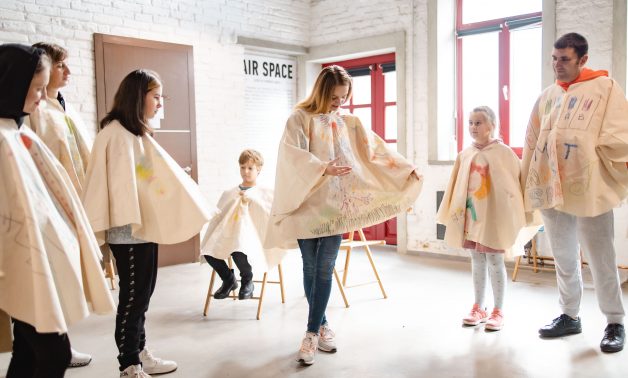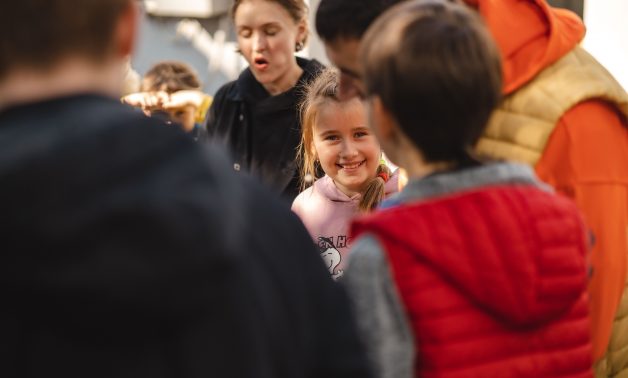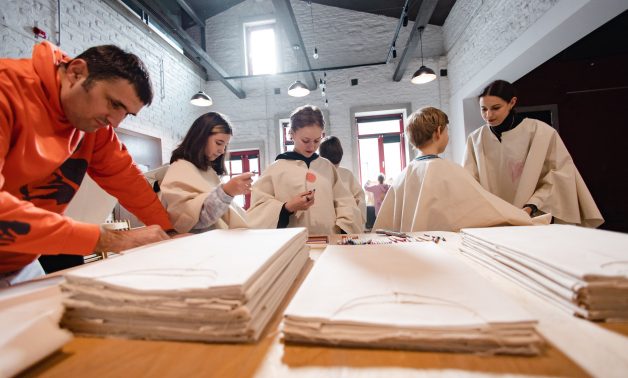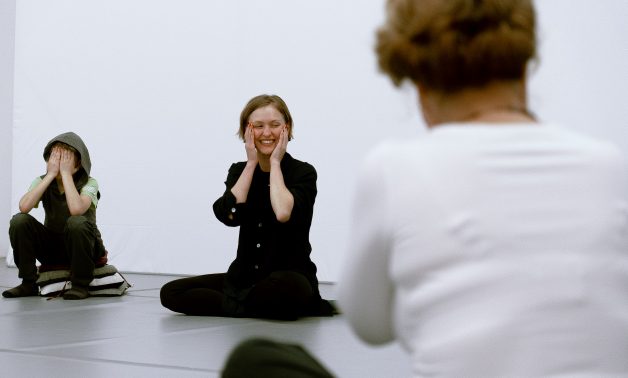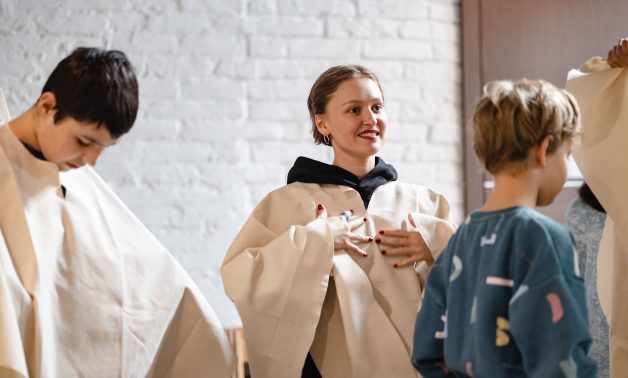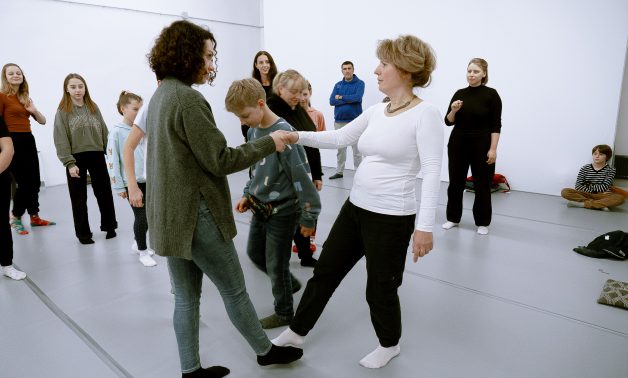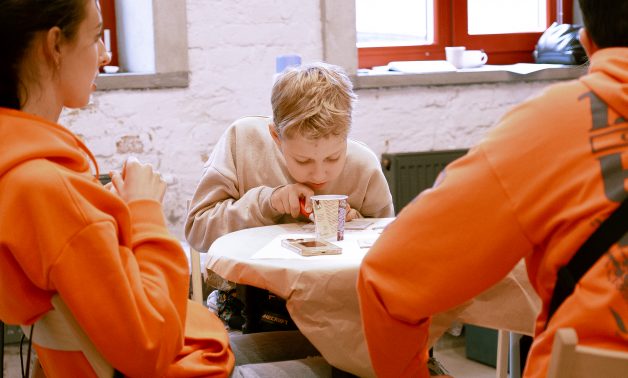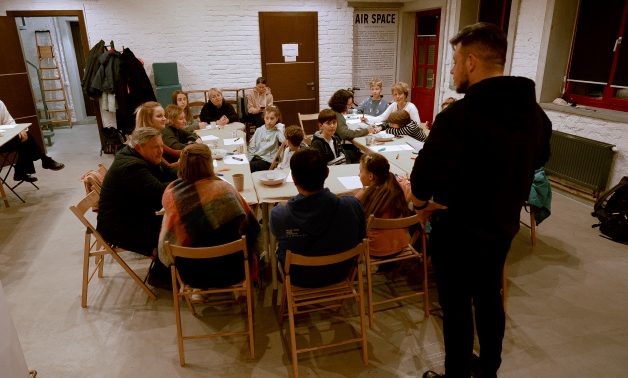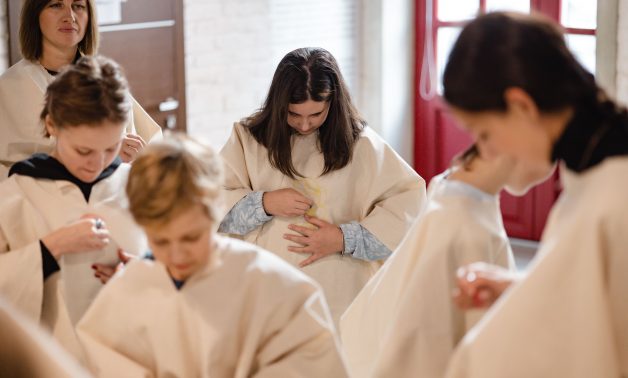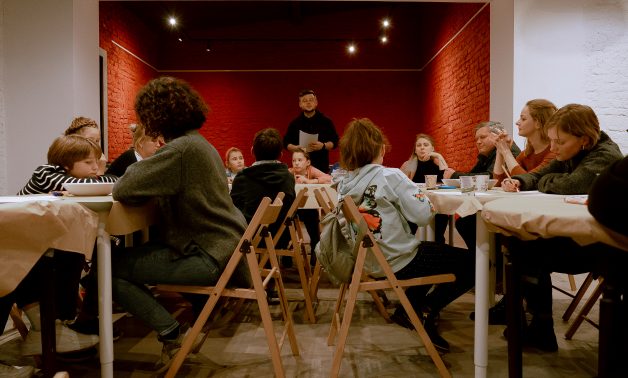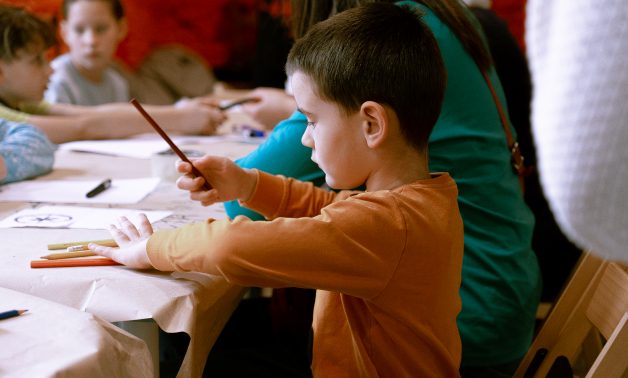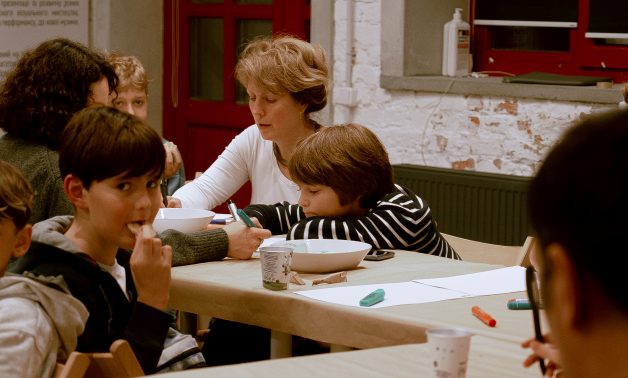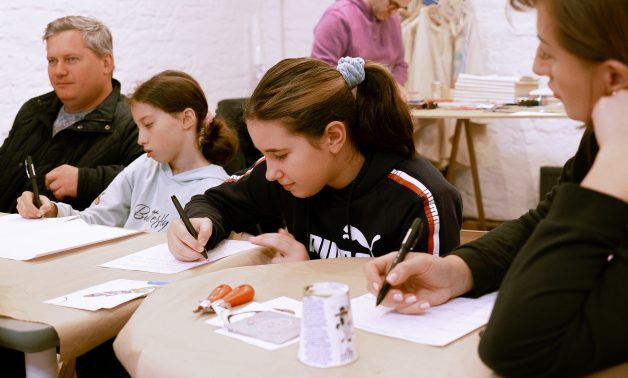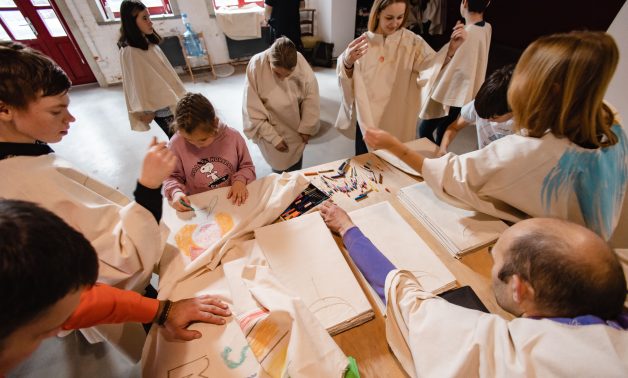News about the “How we stay together” art residency in Lviv has been released on TV in a series entitled “Rocket attack, farewell to Heroes and heating points | 31.10.2022”, which fully reflects the state and the context all Ukrainians experience now.
The Jam Factory Art Center in Lviv, Ukraine, has launched a community-oriented project called “How We Stay Together” to help families struggling with communication issues due to the ongoing war. The project invited families with children aged 10-13 to participate in two weeks of art and theatrical practices designed to foster warmth and connection within the family unit.
The program was a safe and comfortable space where families could come together, discuss their worries and emotions, and learn more about each other through play and artistic expression. The classes were a resounding success, with 19 people from Lviv and those who moved to the city after February 24, 2022, participating.
“We thought it would be nice to do a project where adults and their children create art together,” said Liuba Ilnytska, theatrical curator. “The goal of the project was to integrate families into the new town, fostering a sense of community and togetherness.”
Participants engaged in both theatrical and art practices. The classes began with check-ins and body training exercises to help everyone feel grounded and connected. The theatrical exercises involved creating individual, paired, and group sketches, presenting one’s family story, and turning everyday stories into flexible theatrical scenes. Participants worked as a team, got to know each other, and interacted through theatrical practices.
“I feel that while working with a body today, it is essential to take care of grounding and a sense of support. Our body is the tool that can help us find this sense of security and presence to relieve stress mechanically,” add Nina Khyzhna, artist in residence, theatrical practices.
The art classes focused on various techniques and included linocut, which the group devoted most of its time to. Throughout the project, the participants worked on a shared linocut where they visualized a collectively written poem. They also created picture ponchos, self-made postcard books, and short videos.
“The role of art is to create and record our current state,” said Bozhena Pelenska, co-curator program, and executive director. “But besides that, art can be therapeutic and educational. The Magic Carpets project enabled us to create important practices for people who moved to Lviv because of the war or stayed here.”
The project gave families a chance to communicate and discover unexpected things about each other. One participant noted, “I discovered a lot of new things about my own son.” The program provided a space for children to talk about their parents, filming their video portraits, and highlighting what is important and valuable to them.
The works created during the project were exhibited during the last days of the program. The classes were a resounding success, proving that art can help bring families together, even in times of conflict.


